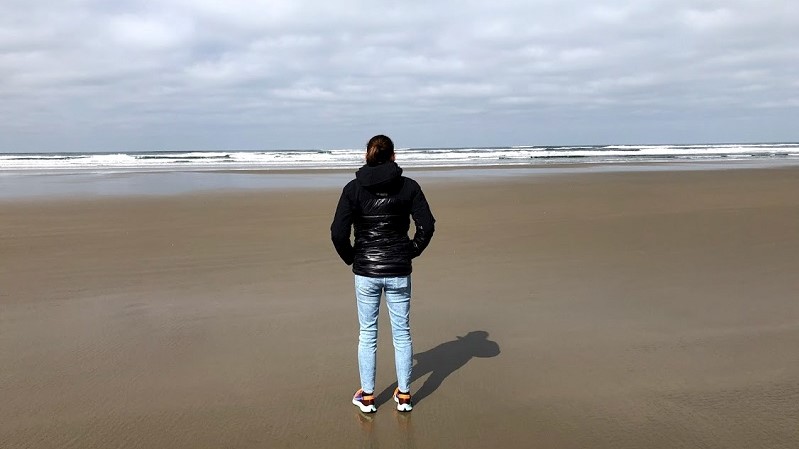Want a great way to quickly get to know someone? Ask them to describe their ideal day. When Duncan and I were first dating, we discussed our “perfect days.” I challenged him to write up a whole itinerary. Where would he be? Who would he be with? What would the day look like from start to finish? And then I created an itinerary for mine. The elements in my perfect day always involve someplace near a body of water. I’m with my family enjoying the sun and the open sky, but I’ve also built in some alone time. The ideal day always begins and ends with me taking a long walk to set my intention for the day, and then reflect back on the day before bed, respectively.

Despite the fact that these ideal days almost always include some hypothetical components that may change with age, the morning and evening reflection is a constant. I am my most grounded self when I have those two touch points in my day. I think my attraction to the idea of starting and ending my days with a connection to the earth, to God, and to my body also offers some insight into my love of Judaism.
Jewish living is structured around prayer – daily prayer – and that comes from our Torah portion this week, Pinchas. Parshat Pinchas begins with the story of Pinchas (identified as Aaron’s grandson) and the extreme action he took toward those who defied the prohibition against idolatry. Then we move to the daughters of Zelophechad (Joseph’s great-great-great-grandson), who want to inherit land after their father’s death because he had no sons. Then Joshua is appointed Moshe’s successor, and we end with the sacrifices we are to make for Rosh Chodesh and the holidays.
This is a big, long, full section of Torah that walks us through conflict and resolution in multiple ways, and then ends with a recitation of how we might find balance and connection to God in celebration of holidays and daily moments. It lays out this structure according to sacrifices. Chapters 28 and 29 list the sacrifices for the daily offering, the new moon, the Passover offering, Shavuot, Rosh HaShanah, Yom Kippur, Sukkot, and Shemini Atzeret. Each one is delineated by what offerings are made, how we make them, and why they are important.
The daily offering, the Tamid, the one which is our constant, is said to have been offered in the morning and at twilight. It is an offering that is funded by the people, not just the leaders or the rich, but one that is made by all of us together. When the Israelites were no longer able to practice daily sacrifice, the rabbis determined that prayer, the Amidah, would fulfill this obligation. That is to say that the sages couldn’t imagine a world without a daily interaction with God, both at the beginning and the ending of the day.
Parshat Pinchas is the reminder that each day needs grounding in holy purpose, whether it’s a formal Yizkor service or an hour gardening. But I challenge you to make it your job not necessarily to be the people of Israel in this comparison, but to be the Tamid, the constant. You keep alive the flame that ignites the holiness in the rest of our holy community.



